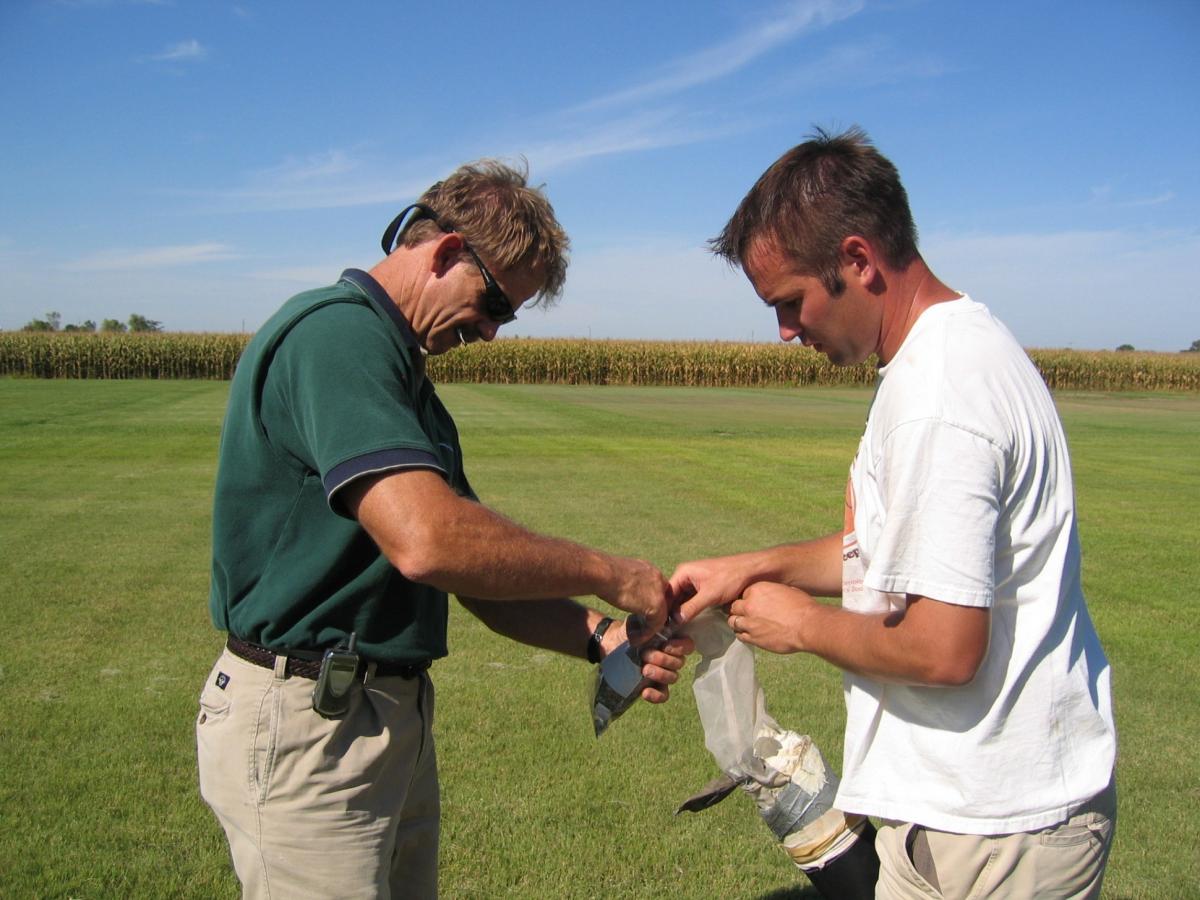How Companies (Like Monsanto) Fill The Research Gaps
This post was originally published on Forbes on October 29, 2015.
Post written by Tom Eickhoff, Ph.D. Tom Eickhoff is Agronomic Systems Lead at Monsanto Company. He focuses on developing and delivering new technology in agriculture.

Research is vital to our work at Monsanto. Without it, we wouldn’t be able to develop the innovations that help our farmer customers around the world. And while it may come as no surprise that we put a lot of focus on research, people might be interested to learn that a lot of that research is actually done in partnership with scientific experts in academia. From my perspective, this collaboration helps everyone. Monsanto gains the insights and perspectives of outside experts. Universities are able to perform more research. And society in large benefits as scientific knowledge advances.
This is something I know about from personal experience – and not just from my work at Monsanto. While earning my PhD in entomology, I also worked as a research technician, and in that role I saw first-hand the importance of private-public research partnerships involving universities like mine. Specifically, my position was supported by grants from private sector companies, and I worked with those companies to conduct experiments involving the efficacy and safety of their insecticide products. These types of partnerships are not at all unusual. In fact, university research in most fields is usually funded by outside grants and contracts from the government, foundations, and the private sector.
As it happens, Monsanto wasn’t one of the companies I worked with on insecticide research while I was a graduate student. But these research partnerships affirmed my interest in joining the agriculture sector and dedicating my career to research that would help farmers, which is how I ended up at Monsanto. And so today, I work on the other side of the table, partnering with academics to conduct scientific research.
These partnerships happen for a lot of different reasons. Sometimes, a university professor is the world’s leading expert in a particular field, and we need their help and insight to address a tough problem. Sometimes, we need to conduct tests in a wide range of different climates or in a unique environment, so we partner with universities in different places around the country and around the world to conduct the research we need to find the answer. Sometimes we want an independent scientist to verify our own work. And sometimes, we simply want an outside perspective on a product or idea we’re working on. No matter what the reason for the partnership, however, these academic experts play an important role in our research.
Additionally, because they often work with multiple companies in the same sector, the academic experts we partner with are able to provide a perspective that goes beyond any one company. We value that broad view, even when it means they conclude that farmers should buy one of our competitor’s products.
For instance, we asked an academic partner to help us identify the best way for farmers to control a certain type of weed. Among other things, they concluded that some farmers should use one of our competitor’s products. We didn’t ignore that recommendation. To the contrary, a tool on our website that recommends weed management strategies for different crops and regions will recommend a competitor’s product if our research partners have recommended it, and we offer farmers incentives if they follow those recommendations. The fact that we offer our customers incentives to use a competitor’s product if it is what an independent academic recommends says a lot about how much we value the views of our research partners in academia.
It’s also worth noting that private sector collaborations with academic institutions play a fundamental role in developing the next generation of scientists. Through these partnerships and hands-on experiences, students learn about the technologies being developed in the private sector, cultivate the skillset needed to work in the industry, and have the chance to network and decide if it is the right career path for them. As a company that hires people out of STEM programs around the world, that’s good for us. But I think it’s good for everyone else, too.
The bottom line is that we don’t have all of the answers, expertise, equipment or facilities at Monsanto to do the research we need. We rely on our academic partnerships to help us bring the best products to our customers. These outside experts are a big part of our overall efforts to help farmers have better and more sustainable harvests. And I think that’s as it should be – because when it comes to meeting the challenge of feeding a growing planet, we’re all in it together.